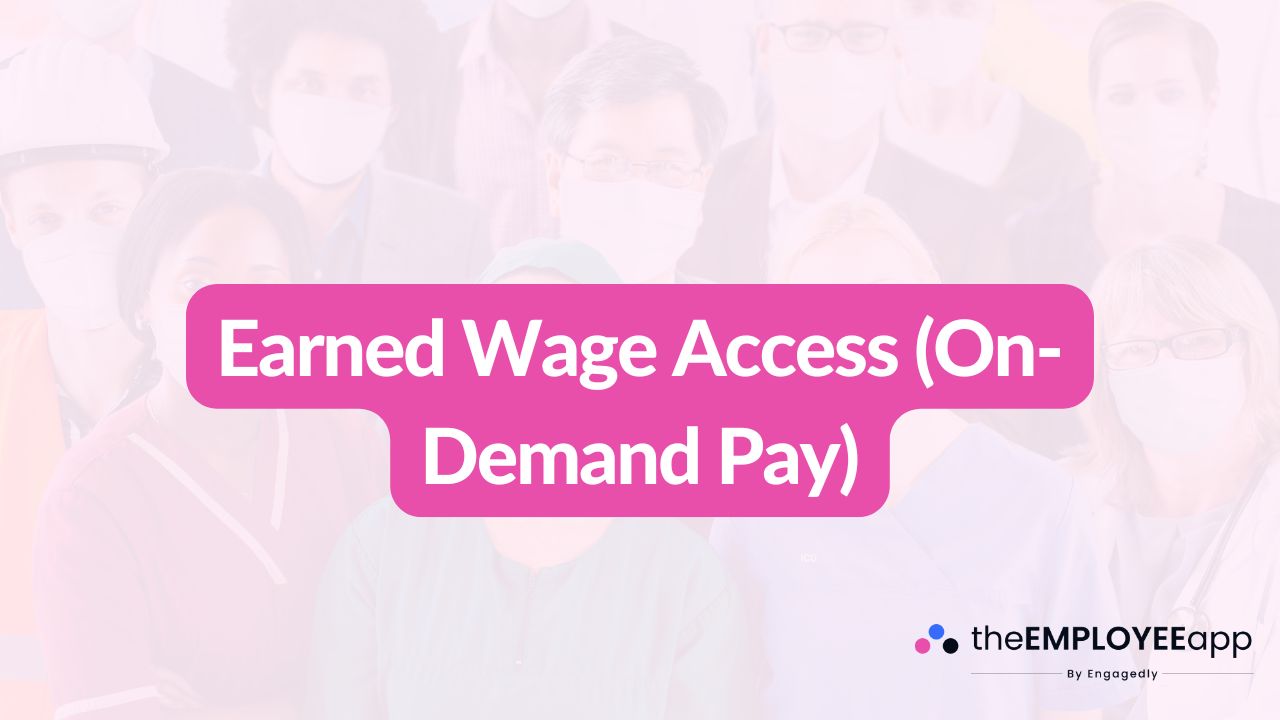
Introduction
Payday has traditionally followed a fixed schedule—weekly, biweekly, or monthly. But in today’s fast-paced world, employees increasingly expect financial flexibility. Earned wage access (EWA), also known as on-demand pay, is transforming payroll practices by allowing employees to access their wages as they earn them instead of waiting for the next scheduled payday. This model supports financial wellness, reduces stress, and helps employers stand out in a competitive labor market.
What Is Earned Wage Access (On-Demand Pay)?
Earned wage access is a financial benefit that enables employees to access part of their earned but unpaid wages before their official payday. For example, if an employee has worked 50 hours in a pay period, they can withdraw wages for the hours already worked instead of waiting until payday. This service is often offered through third-party platforms or integrated payroll systems.
Unlike payday loans or credit advances, earned wage access allows workers to access money they’ve already earned—without high fees or interest.
How Earned Wage Access Works
The process is straightforward:
Employees work their scheduled hours and their earnings are tracked in real time.
Through an EWA app or payroll integration, employees can view their available balance.
They request a transfer of funds, which is deposited directly into their bank account, pay card, or digital wallet.
On the official payday, the advanced amount is deducted from their paycheck.
Some employers cover the cost of EWA, while others pass on small transaction fees. Either way, it provides an immediate and secure alternative to costly borrowing methods.
Why Earned Wage Access Matters
Financial stress is one of the most common challenges for employees, especially frontline and hourly workers. Unexpected expenses—such as medical bills, car repairs, or childcare needs—can create hardships when workers must wait weeks to access their pay. Earned wage access bridges this gap by providing greater control and flexibility over finances.
For employers, offering on-demand pay improves recruitment, retention, and employee engagement. A strong EWA program signals to workers that their well-being is a priority.
Key Benefits of Earned Wage Access
For Employees:
Financial flexibility: Access wages when needed without waiting for payday.
Reduced reliance on debt: Avoid payday loans, overdrafts, or high-interest credit cards.
Improved financial wellness: Gain confidence in handling unexpected expenses.
Higher satisfaction: Employees feel more valued and supported.
For Employers:
Stronger recruitment: Attract top talent in competitive industries by offering flexible pay options.
Better retention: Employees are more likely to stay with companies that offer financial support.
Boosted productivity: Workers with less financial stress are more focused and engaged.
Enhanced reputation: Demonstrates commitment to modern, employee-centric practices.
Challenges and Considerations
While earned wage access offers significant benefits, employers should consider:
Costs: Transaction fees or service charges may apply.
Integration: Payroll and HR systems must be set up for seamless tracking.
Policy clarity: Employers should clearly explain limits on withdrawals, eligibility, and repayment processes.
Compliance: Companies must ensure programs meet local labor and wage laws.
Best Practices for Implementing Earned Wage Access
Partner with trusted providers: Choose platforms with transparent fees and strong security.
Educate employees: Provide training and communication on how the program works.
Promote responsible use: Encourage employees to view EWA as a safety net, not a substitute for financial planning.
Track impact: Monitor usage trends, employee satisfaction, and retention to measure success.
Stay compliant: Regularly review policies to align with labor regulations.
The Future of Pay
Earned wage access is more than a trend—it’s part of a broader shift toward flexible, employee-first workplace practices. As the demand for financial wellness benefits grows, on-demand pay is becoming a standard expectation rather than a perk. Employers who adopt this model position themselves as forward-thinking and employee-focused.
Conclusion
Earned wage access (on-demand pay) redefines how employees experience payroll. By allowing workers to access their earnings when they need them most, companies help reduce financial stress and create a healthier, more engaged workforce. For employees, it’s about empowerment and peace of mind. For employers, it’s a competitive advantage in today’s evolving labor market.
